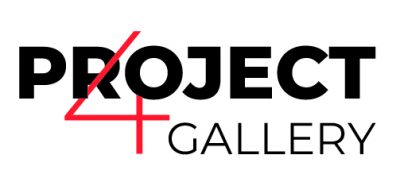In a world often dominated by conflict and strife, the age-old adage “the pen is mightier than the sword” resonates deeply, offering a profound insight into the power of ideas and intellectual discourse. This sentiment, although expressed in various forms throughout history, finds a particularly poignant expression within Islamic philosophy. From the Golden Age of Islamic civilization to contemporary debates on religious pluralism and social justice, the imperative for the pen to defy the sword remains a central theme. In exploring this idea, we unveil the rich tapestry of thought within Islamic tradition and its universal relevance in promoting peace, dialogue, and progress.
Historical Context:
The Golden Age of Islam, spanning from the 8th to the 14th century, witnessed an unprecedented flourishing of intellectual inquiry, scientific innovation, and cultural exchange. At the heart of this epoch was a profound respect for knowledge, embodied in the Quranic injunctions to seek wisdom and understanding. Islamic scholars, from Avicenna to Averroes, epitomized the synthesis of reason and revelation, challenging orthodoxies and advancing human understanding in fields ranging from medicine and mathematics to philosophy and poetry. Their legacy underscores the transformative potential of ideas in shaping societies and transcending the limitations of brute force.
Intellectual Jihad:
Central to Islamic thought is the concept of jihad, often misunderstood as synonymous with holy war. However, its true essence lies in the struggle for righteousness, which encompasses not only physical combat but also intellectual engagement and moral rectitude. The Quranic verse “Invite to the way of your Lord with wisdom and good instruction, and argue with them in a way that is best” (Surah An-Nahl, 16:125) exemplifies the emphasis on peaceful persuasion and dialogue as tools for social transformation. In confronting ignorance and oppression, the pen becomes a formidable weapon, capable of dismantling falsehoods and nurturing empathy across cultural divides.
Tolerance and Pluralism:
Contrary to popular misconceptions, Islam has a rich tradition of religious pluralism and tolerance, exemplified by the legacy of Andalusia and the Ottoman Empire. Scholars such as Ibn Rushd championed the compatibility of reason and revelation, advocating for the coexistence of diverse faiths within a pluralistic society. The principle of dhimma, which protected the rights of non-Muslims under Islamic rule, reflects a commitment to justice and compassion in governance. In a world plagued by sectarianism and religious extremism, the pen serves as a beacon of enlightenment, illuminating paths towards mutual respect and coexistence.
Social Justice and Activism:
Islamic philosophy has long been intertwined with movements for social justice and human rights, from the egalitarian teachings of Prophet Muhammad to contemporary struggles against tyranny and oppression. The concept of ijtihad, or independent reasoning, empowers individuals to challenge injustices and advocate for reforms within the framework of Islamic law. Figures like Malala Yousafzai and Tariq Ramadan embody the spirit of intellectual activism, using their voices to amplify marginalized perspectives and challenge systemic inequalities. By harnessing the power of the pen, they inspire others to confront injustice with courage and conviction.
Conclusion:
In a world besieged by violence and intolerance, the timeless wisdom of Islamic philosophy offers a path forward rooted in dialogue, tolerance, and justice. The pen, as a symbol of knowledge and enlightenment, possesses the capacity to transcend the limitations of brute force and foster meaningful change in society. By embracing the principles of intellectual jihad, religious pluralism, and social activism, we honor the legacy of Islamic scholars who strove to reconcile faith with reason and transform the world through the power of ideas. In the words of Rumi, “Let the beauty of what you love be what you do,” for it is through the pursuit of truth and justice that we fulfill our highest purpose as human beings.









